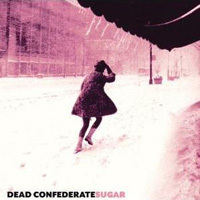Ever since their inception in 1978, Orchestral Manoeuvres In the Dark have had an on-off relationship with pop music. OMD’s biggest achievement was how their most successful (and best) album Architecture and Morality combined their esoteric lyrical concerns and electronic experimentation with genuine chart success; few bands have scored consecutive top five hits with love songs about Joan of Arc (being ‘Joan of Arc’ and ‘Maid of Orleans’), never mind the fact that the latter single started with almost a minute of ambient synth washes interrupted with sudden atonal drones.
So where does History of Modern, OMD’s first album in 14 years, stand in relation to their body of work? I hate to say it, but if you plotted a graph representing the downward trajectory of OMD’s output since Dazzleships then History of Modern would represent no deviation from nose dive which started in the late Eighties. Co-founder Paul Humphreys stated that the album title was a reference to the fact that the electric pioneers were the last real modernist movement in music, with everything subsequent looking backwards for its inspiration. This seems to be a cue for OMD to gut their earlier sound of all the fascinating idiosyncrasies and experimental flair that distinguished it and coat the empty shell in high sheen electro-pop gloss and drape it platitudes.
The single ‘If You Want It’ pretty much encapsulates the record’s pervasive flaws, all would-be-rousing “Woahs” and tinkling synth arpeggios punctured with beats which were made for punching the air to. The real low-point is where Andy McCluskey wails his trite lyrics “Let it inside your heart, set your mind and spirit free, show me, show me, show meeeeeeeee” stretching that last “me” over a tasteless phased drum breakdown. That’s not the most tasteless moment however, that honour belongs to ‘Sometimes’, a sappy mid-tempo ballad built on a Nineties house-style beat and featuring the most ill-judged deck scratching this side of Hybrid Theory. It really doesn’t sound like OMD at all, in fact with the husky guest vocals from Jennifer John on top, it sounds like Macy Gray.
‘The Future, The Past, and Forever After’ takes five minutes of acceptable Moroder-style bass to repeatedly tell us about the unavoidability of fate in clumsy similes, “Like a bullet from a gun it will run, like an arrow from bow to you, like a speeding train on wheels of steel it will come to you.” The most cringe-inducing moment is the when McCluskey tries to do sexy on ‘Pulse’, breathily intoning “I gave you clear instructions how to use the function, fucking listen ’cos it’s what you came for”. If anybody at all was in danger of being seduced the swearing really kills the mood, although to be fair the chorus is a surprisingly decent approximation of contemporary R&B. The track which most betrays their influences of old is the ode to Kraftwerk ‘RFWK’ (i.e. Ralf/Florian/Wolfgang/Karl), which takes the basic motorik synthetics of Kraftwerk and melds them into another dull sugary synth-pop ballad. Weirdly, the closing track ‘The Right Side’ is a much more effective approximation of their sound and as such retains a homemade charm that stands out amidst the gloss.
There are other shafts of light. The most audible influence on ‘Sister Marie Says’ is OMD themselves. The song was shelved from 1996’s Universal, because it sounded too much like ‘Enola Gay’ i.e. it’s extremely catchy, if you can get past the horrific choral keyboards which open it. ‘New Babies: New Toys’ is an unexpectedly raucous opener, the distorted bassline and McCluskey’s sneering vocal the closest OMD have come in sound to their post-punk contemporaries of yore. ‘New Holy Ground’ is the high-point, however, the cello-like sawing and saturation of both low-end and high-end with synth strings recall the woozy majesty of ‘Romance of the Telescope’ from Dazzleships, as does the sound of footsteps which echoes throughout the track.
Ultimately ‘New Holy Ground’ is the only track I can whole-heartedly recommend without reservation or qualification. History of Modern is a record for the die-hard OMD fans only and those who have followed them throughout their career up to their last record 14 years ago might enjoy acquainting themselves with new, but familiar sounds. It’s too late in the day for a record to make or break OMD in any sense, their pseudo-legendary status is already assured. Let’s just hope that if come festival season next year and OMD are filling the Marc Almond/Gary Numan/synth-pop icon slot at festivals like Primavera, that we don’t have to endure much more than a ‘Sister Marie Says’ or ‘New Holy Ground’ to get our ‘Souvenir’ or ‘Messages’.
-
4Neil Ashman's Score






















